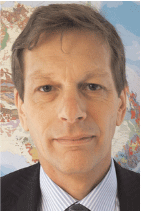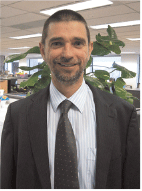Economic impacts and effects on communities of the CSG industry in Queensland
Nicole Thomas A , Ross Lambie A and Wayne Calder ABureau of Resources and Energy Economics.
The APPEA Journal 55(2) 437-437 https://doi.org/10.1071/AJ14072
Published: 2015
Abstract
Social licence to operate is a key issue in the eastern Australian gas market as it transitions to liquefied natural gas (LNG) exporting and relies on unconventional gas to satisfy this new demand.
Although there is a large body of research on the environmental, social and economic effects attributable to unconventional gas activities, more knowledge is needed about the economic impacts of the coal seam gas (CSG) industry and the effects of the various stages in the CSG value chain experienced by communities.
The Department of Industry has undertaken a study on Queensland’s experience with CSG development.
A synthesis of existing economic impact studies relating to the CSG industry in Queensland finds that while there are economic benefits, a greater understanding of how the benefits and costs are spread among and in communities is needed. It also finds that there is little knowledge of the cumulative impacts of multiple concurrent projects in addition to the impacts of existing land usage.
An assessment of effects from CSG activities that may directly or indirectly affect the economic welfare of communities in the Bowen and Surat basins highlights that while health impacts, land access and usage, water impacts, transport nuisance and noise pollution are all perceived to be significant, community perceptions about these effects change in time along with changes in the nature and scale of underlying activities.
Opportunities for specific economic analysis on specific CSG activities and their associated consequences are also identified in this extended abstract, which may assist in addressing existing information and regulatory gaps.

Nicole Thomas is an economist in the gas markets team of the Resources and Energy Economics Branch in the Department of Industry and Science. Nicole was previously the counsellor, Resources and Energy, at the Australian High Commission in India, responsible for collaboration with the Indian government and industry on energy and resource issues. Prior to taking up her position in New Delhi, Nicole managed the offshore petroleum exploration section at the Department of Resources, Energy and Tourism, with previous roles in the Department responsible for carbon capture and storage policy and mine safety. Nicole earlier worked for Australia’s Treasury and the Department of Finance and Administration. Nicole holds a BA/BSc, a graduate diploma in Applied Economics and is undertaking a Master of Environment and Resource Economics. |

Ross Lambie is senior economist and manager of the gas markets section in the Resources and Energy Economics Branch of the Department of Industry and Science. Before joining the Department, Ross was manager of the economics team for the ACT Independent Competition and Regulatory Commission. Ross has extensive experience trading fixed interest securities and derivatives in the New Zealand financial market including positions as manager of money market and bond trading desks for Westpac New Zealand. Ross holds degrees in accounting, resource studies and economics (Hons) and a master of commerce and management. He has recent ly been awarded a PhD in public policy (ANU) for his thesis on the application of real options analysis to understand firm investment behaviour under a carbon emissions pricing scheme. |

Wayne Calder is the general manager of the Resources and Energy Economics Branch of the Department of Industry and Science. Previously Wayne was the general manager of the Low Emissions Coal and CO2 Storage Branch with responsibility for fostering research, development, demonstration and deployment of low emissions coal technologies and the general manager of the coal sector programs branch, where he established two new programs for the coal sector as a part of the Clean Energy Future plan. Prior to that Wayne was the general manager of Tourism Research Australia and the general manager of the tourism policy branch, where he developed the national long-term tourism strategy. Wayne started his career in the Australian public service in the Productivity Commission and has also worked on communications policy, regional development, industry policy, taxation, energy and tourism policy. |
References
Hajcowicz, S.A., Heyenga, S., and Moffat, K. (2011). The relationship between mining and socio-economic well being in Australia’s regions. Resources Policy 36, 30–8.Measham, T.G., and Fleming, D.A. (2014). Impacts of unconventional gas development on rural community decline. Journal of Rural Studies 36, 376–85.
Measham, T., and Fleming, D., 2013—Lessons from developments of resource extraction industries in rural areas: a literature review report to the Gas Industry Social and Environmental Research Alliance (GISERA). Canberra: CSIRO.


